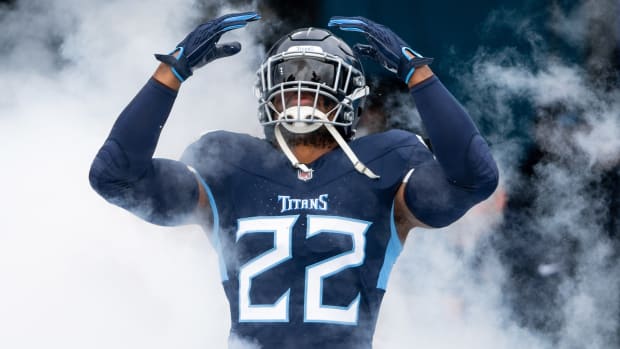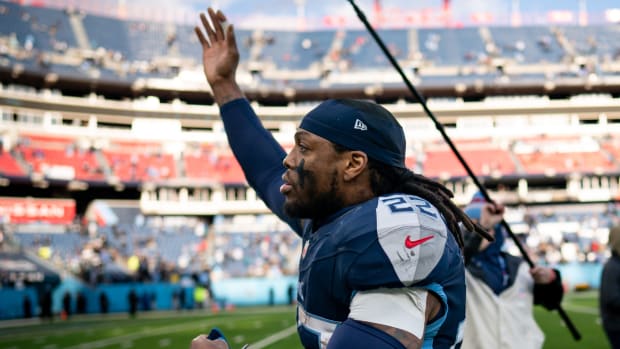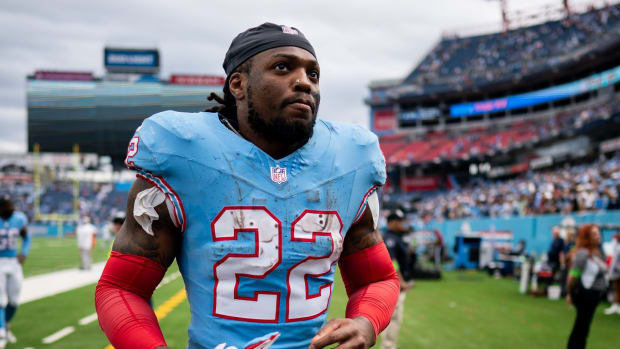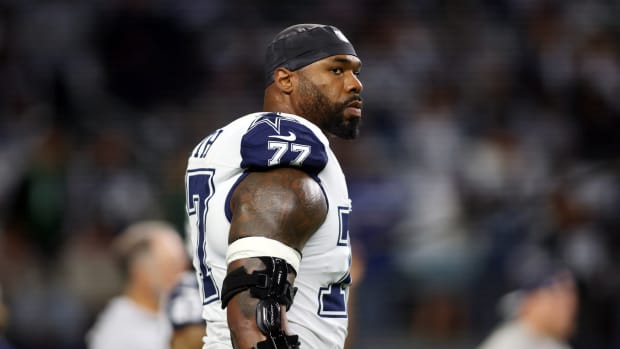A Familiar Issue Resurfaces on Offense
We’ll at least give the Tennessee Titans’ offense credit for this:
When it absolutely, positively had to have a second-half touchdown during Sunday’s 17-14 loss to the Chargers, that unit marched right down the field and scored.
Everything worked.
A couple of Derrick Henry runs produced the all-important initial first down. Quarterback Ryan Tannehill connected with his tight ends for two big gains – 28 yards to rookie Chig Okonkwo and 17 yards to Austin Hooper. The Titans only faced third down twice, and they converted both third-and-1 opportunities. When Tannehill plunged in from one yard out to tie the game 14-14, it capped an 11-play, 74-yard drive that looked like it would force overtime.
Didn’t quite pan out that way, of course.
Still, the ability of the Titans’ offense to click in that high-pressure situation leads to one inevitable question: Where was that kind of execution the rest of the game, and especially in the third and fourth quarters?
On the previous six drives in the second half, Tennessee produced all of 61 yards, four first downs and no points, going 0-5 on third down.
The Titans’ offensive failures in the second half aren’t exactly breaking news at this point, of course. Heading into Sunday’s game, the Titans had scored all of 70 points this season in the third and fourth quarters, a 5.4 points-per-game second-half average that was the worst in the NFL.
So, hey, looking at it that way, a whopping seven second-half points in each of their last two games actually boosted their second-half average.
But that’s probably not much consolation.
What stymied the Titans’ offense in the second half against the Chargers? (Note: Yes, we know the Titans only scored seven points in the first half as well, but the first two quarters have been less of a problem over the course of the season.)
Familiar issues played into the problem:
• After not surrendering a single sack in the opening half against the Chargers, the Titans allowed four in the second half. On the third possession of the second half, for instance, they suffered a pair of sacks – with guard Aaron Brewer allowing one and left tackle Dennis Daley another. The second resulted in a 51-yard field-goal attempt for Randy Bullock, which he missed.
“It’s not just one guy,” coach Mike Vrabel said of the pass protection. “The best offensive lines are ones that work great together. We’ve done that this year. We’ve done that at times today. Then one mistake leads to a sack or negative play. We had plenty of positive plays. It’s just everybody together trying to get back into that rhythm and avoid first-and-20s, second-and-long, third-and-25. You run out of stuff to call.”
• A penalty short-circuited another second-half possession. Early in the fourth quarter, Hooper was called for holding – his second hold of the game – and Tennessee wound up with a second-and-17 instead of a more manageable third-and-5. Tannehill was sacked for the third time on the next play, leaving the Titans in a third-and-23.
• The Titans also made a couple of debatable calls on a pair of third-and-2 plays in the second half. Instead of turning to Derrick Henry against one of the NFL’s worst run defenses, threw passes – unsuccessfully. Passes to wide receiver Robert Woods and Okonkwo fell incomplete.
“There’s times when the quarterback had time, nobody was open,” Vrabel said. “There was times when quarterback didn’t have time and guys were open. That’s how this thing goes. … It’s a cumulative operation and when it’s done well, we can win football games.”
And when it’s not done well, the Titans continue to sputter through second halves, offering only the rare bright glimpse of production under pressure.






